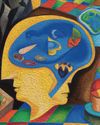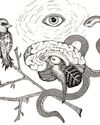
In my early twenties a close friend committed suicide. He was a beautiful soul and I will always question myself as to what, as his friend, I should have done to help him. As Henry James advised; “Never say you know the last word about any human heart.” Maybe there was nothing, maybe there was something. At the time I had never really thought too much about what being a friend meant. I don’t think we reflect about the idea of friendship too much today. When we are young, we take the fact we have friends for granted without thinking too much about what type of friends they are. When we get older, we let work, distance and family get in the way. It is maybe only when we are much older and there is no work, family disperse, and our world gets smaller that we realise what we are missing.
One of Western philosophy’s greatest figures, Aristotle, spent a lot of time thinking about friendship. For him philosophy meant thinking about how we should live, and friends were central to the good life. He was not the first philosopher to value friendship so highly – Socrates is quoted as saying that friendship meant more to him “than all Darius’s gold” – but Aristotle was the first to dedicate sustained attention to the subject. In his Nicomachean Ethics, no less than two whole books are devoted to the topic. Even justice, in Aristotle’s view the highest virtue, only gets one book.
This story is from the {{IssueName}} edition of {{MagazineName}}.
Start your 7-day Magzter GOLD free trial to access thousands of curated premium stories, and 9,000+ magazines and newspapers.
Already a subscriber ? Sign In
This story is from the {{IssueName}} edition of {{MagazineName}}.
Start your 7-day Magzter GOLD free trial to access thousands of curated premium stories, and 9,000+ magazines and newspapers.
Already a subscriber? Sign In

Anselm (1033-1109)
Martin Jenkins recalls the being of the creator of the ontological argument.

Is Brillo Box an Illustration?
Thomas E. Wartenberg uses Warhol's work to illustrate his theory of illustration.

Why is Freedom So Important To Us?
John Shand explains why free will is basic to humanity.

The Funnel of Righteousness
Peter Worley tells us how to be right, righter, rightest.

We're as Smart as the Universe Gets
James Miles argues, among other things, that E.T. will be like Kim Kardashian, and that the real threat of advanced AI has been misunderstood.

Managing the Mind
Roger Haines contemplates how we consciously manage our minds.

lain McGilchrist's Naturalized Metaphysics
Rogério Severo looks at the brain to see the world anew.

Love & Metaphysics
Peter Graarup Westergaard explains why love is never just physical, with the aid of Donald Davidson's anomalous monism.

Mary Leaves Her Room
Nigel Hems asks, does Mary see colours differently outside her room?

From Birds To Brains
Jonathan Moens considers whether emergence can explain minds from brains.